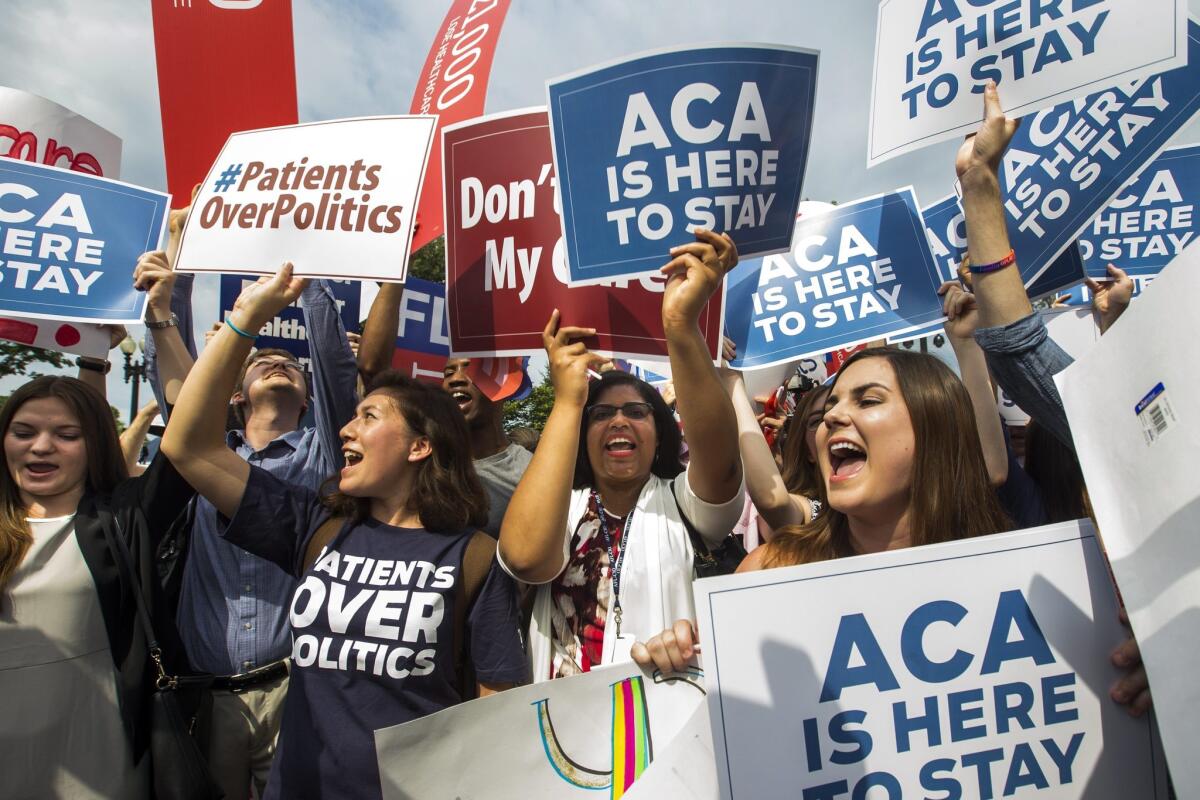Readers React: Keeping Obamacare costs down is trickier than just a ‘Cadillac tax’

Supporters of the Affordable Care Act cheer after the Supreme Court ruled that Obamacare tax credits can go to residents of any state, in Washington, D.C. on June 25.
To the editor: We agree with much of your editorial. (“‘Cadillac tax’ needs a tuneup,” Editorial, Oct. 13) As the president of the Immune Deficiency Foundation, the national patient organization for individuals with primary immunodeficiencies, I’d add that this tax also presents a threat to patients who rely on costly medications to stay healthy.
Many people with PI, who are born with part of their body’s immune system missing or functioning improperly, must receive lifelong expensive infusions to prevent serious infections. As insurers shift more costs to patients, individuals with PI face incredible out-of-pocket expenses.
The “Cadillac tax” encourages employers to increase out-of-pocket costs for employees, increasing the likelihood that the most vulnerable will forgo care.
We urge Congress to rethink how the tax is applied so that those most at risk are not harmed.
Marcia Boyle, Towson, Md.
..
To the editor: As a primary-care internist with 30 years of experience, I must challenge your notion that higher co-pays and deductibles result in more efficient healthcare. Although it may sound plausible, these kinds of barriers are more likely to cut down on necessary rather than unnecessary or marginal care.
Patients are more likely to forgo preventive care for conditions such as hypertension and diabetes, which do not produce symptoms until more expensive conditions result.
Also, those who pay their premiums every month but limit their care because they cannot afford the co-pays subsidize those who are more affluent.
What will produce the best result is a good relationship between an unbiased doctor who practices cost-effectively and his or her patient.
Hyman J. Milstein, MD, Studio City
Follow the Opinion section on Twitter @latimesopinion and Facebook
More to Read
A cure for the common opinion
Get thought-provoking perspectives with our weekly newsletter.
You may occasionally receive promotional content from the Los Angeles Times.










